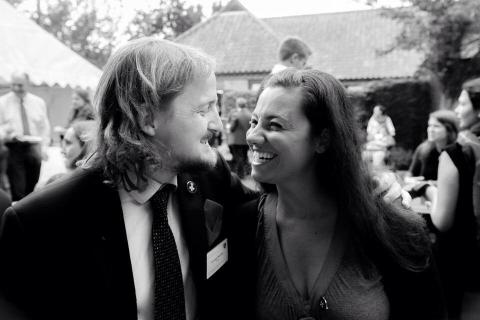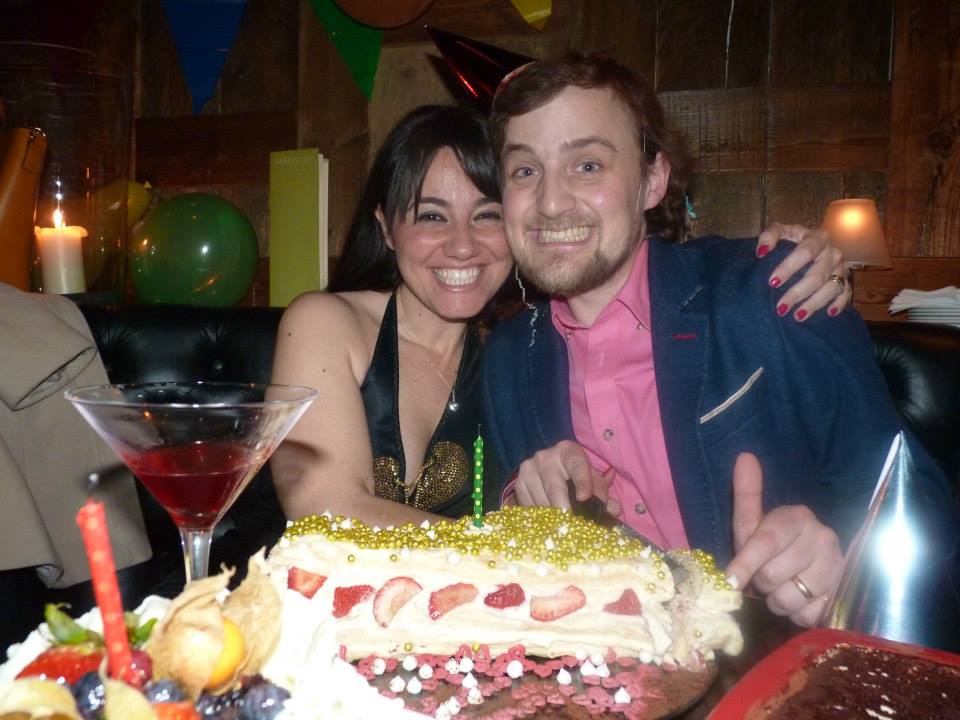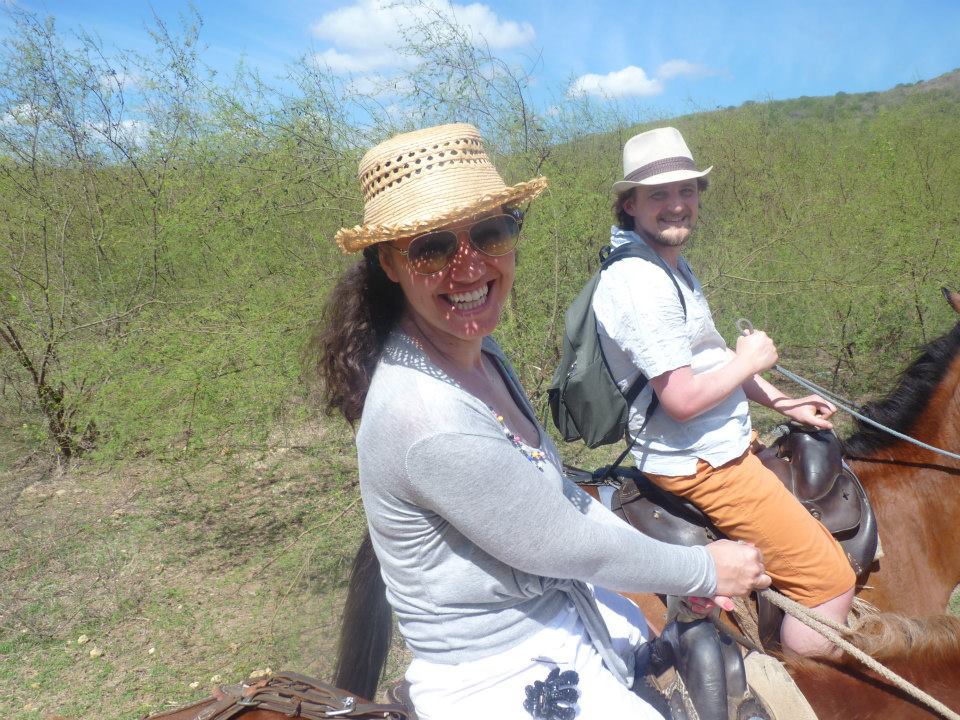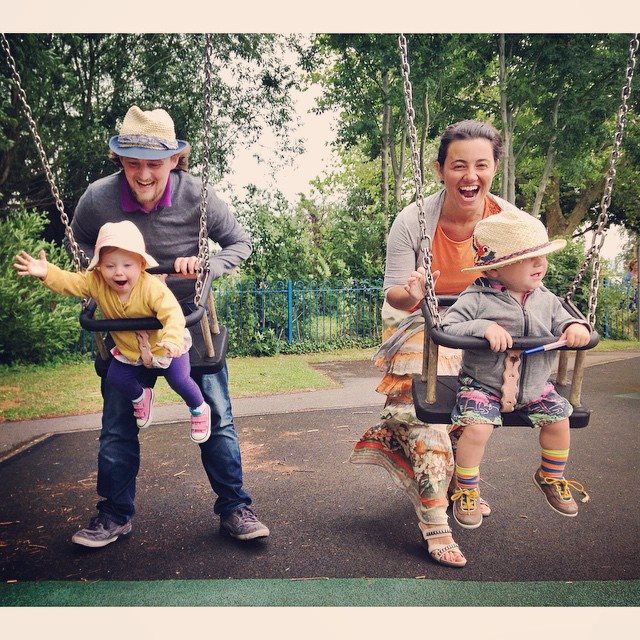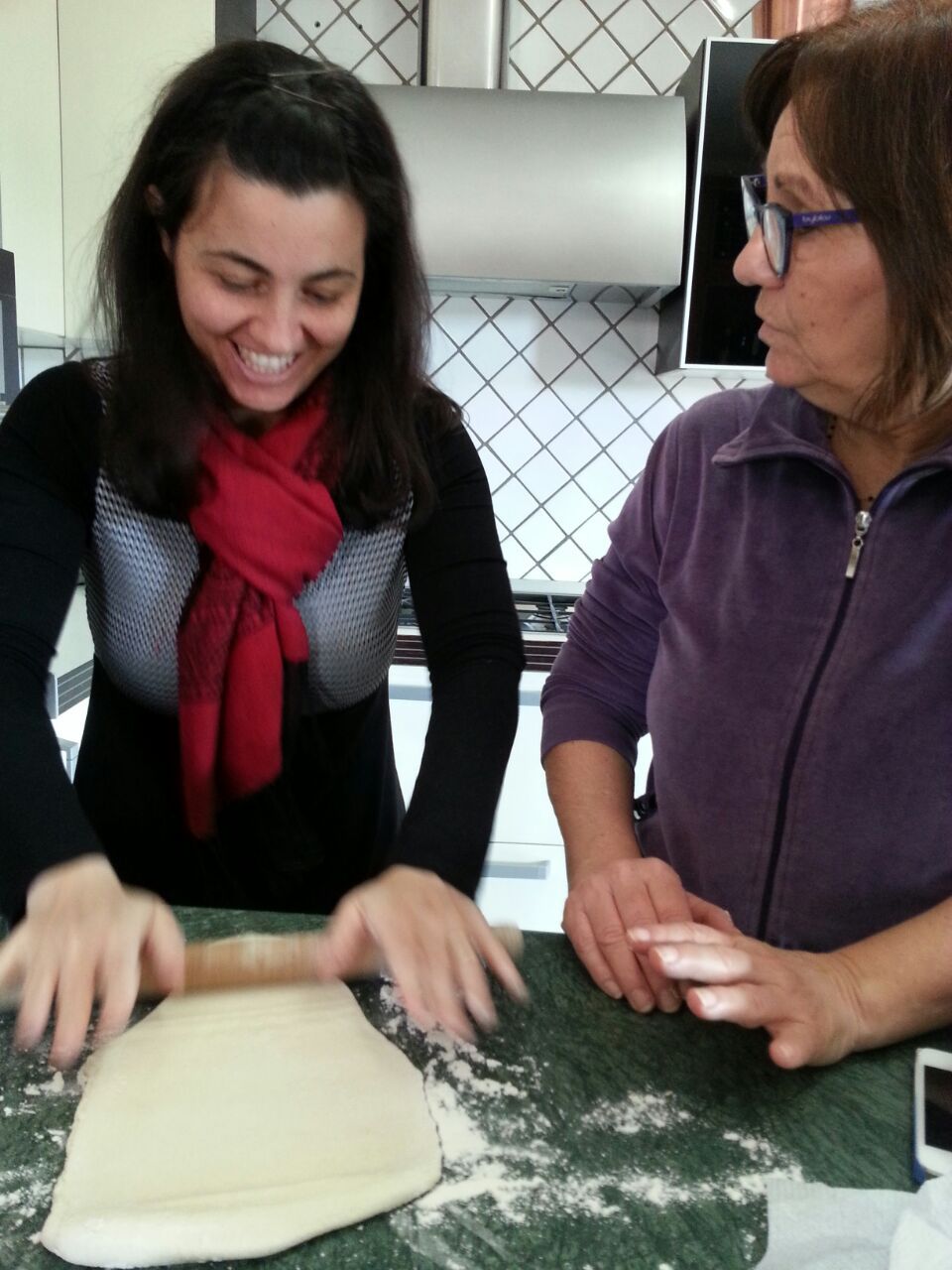Loved ones, who provide support and care to people who've had a bone marrow transplant, go through a great deal as well.
In 2014, Mariacristina’s husband George had a stem cell transplant to treat his acute lymphoblastic leukaemia. Billie in the Patient Experience team interviewed her to talk about her feelings during the process and the ways their life has changed since.
Do you or did you ever consider yourself a carer to George?
In the beginning I don’t think I’d fully realised the impact a transplant could have on George. Maybe it was just my way of coping, to reject the potentially huge responsibility, initially – because to me the word carer is more like a burden or a weight.
It’s one thing to look after the person you love, and another thing to be called their carer. The official nature of the term puts a lot of pressure on you, doesn’t it? Although I cared for George, I didn’t think of myself that way.
What was it like when you first found out that George needed a transplant?
I remember being in the room with the consultant. She said to George, ‘You’ve relapsed, and the only thing to do is have a bone marrow transplant.’
I reacted badly, and just said, ‘No! Why a transplant? No, no,’ because I had read a lot about it already and knew it was a huge undertaking, potentially life-threatening.
I was in denial; surely he could have more treatment instead? The doctor was really straight with me and said, ‘No, there is no chance he will survive without a bone marrow transplant.’
So my initial response was negative. But I spoke with doctors and nurses, and went away and read blogs, and I eventually started to see it could be a good thing for people, that it could save their lives.
I was really scared, though. Fear was my main feeling at the time; a fear of losing my husband. I knew that the percentages weren’t great and that it was a dangerous procedure.
The need to have some kind of certainty of the outcome was really strong in me, but we couldn’t have that – so you end up feeling a bit helpless.
How did you find the experience of him being in hospital, as a partner of someone having a transplant?
At the beginning it felt really odd. It was a new situation for us as a couple, George had been ill already, but that happened when we weren’t together and I wasn’t living in England.
Talking to George’s father and step mother helped, as they had gone through similar experiences with their first partners. They told us, ‘Things will be strange at the beginning, as it's such a change to your life routine, but things will settle and you will learn how to live this way.
The staffs on the ward were just amazing. Really nice and fun, and some of them already knew George so it was very reassuring for me to see how close they were and how supportive. In a way I was lucky, as my husband is a positive man. So to see him settling in fine settled me.
And we made the most of the situation. I would go to work, and then every day after 6 I would visit him at the hospital where we would have supper together, watch a good film and talk to each other. It was our life, just in a different setting.
Did you find the medical staff communicated with you well if you had questions or needed support?
They were the best. So caring, so sweet. Sometimes going back to hospital felt like going to see family. I took a lot of comfort from this, as I knew it wasn’t just me and George. They were with us every step of the way.
Other than the transplant team where would you get support from?
I learnt to use forums – Anthony Nolan’s online forum first, and then Macmillan Cancer Support was helpful. When something big like this happens in your life you feel like you can’t believe it and kind of lonely.
Then you go online and realise that the same things are happening to thousands of other people. Which is comforting, but also really sad. If I asked a question, the people answering knew exactly what I meant, because they had lived it too.
No doctor or leaflet can give you that. The cancer community is vital.
So what was it like coming home after the isolation period?
It was scary (again!). I remember about 14 days after the transplant the doctor saying, ‘Actually, I think you are ready to go home.’
I was like, ‘No!’
I didn’t want him coming home yet. I didn’t feel safe having him home and being the person to look after him all the time by myself.
But after asking the medical staff lots of questions, he did come home. It felt awkward at first, but it was so nice to return to some kind of normal routine.
Waking up having my husband by my side, and falling asleep knowing he would be there in the morning. I wasn’t alone any more.
Did you have to provide any practical medical care for him at home?
No, not that I remember. Just being really careful with the food I prepared for him. I think there was one time when he picked up an infection and we had to go straight to the hospital in the middle of the night.
But other than that, no. George was very independent.
How would you describe life now? What’s changed ?
Life is good. Life is a little bit different. We make the most of every little thing - things that we used to take for granted, we don’t anymore.
But I am the worrier in the couple, and there are things I am extra-careful with now. For example, in the past we would get on a very crowded train or bus, whereas now I refuse to do so. The risk of him picking up an infection or even a cold – I would rather walk, or more realistically take a taxi! Same with going out for dinner. We used to be really relaxed, but now I will only go to tried-and-tested places where I know the hygiene standard is really high.
And life has changed because when you go abroad it’s difficult to get insurance, and so there is always a lot of planning around that.
Is there anything you think you have gained as a result of being through this experience together?
It definitely made us stronger. The treatment for leukaemia is very harsh, hard on your body, and the things you go through are not pretty – but we faced them together.
It has given me a different perspective on things. Before I might get upset or stressed after a day at work, now I don’t get upset about work. There are bigger things to get upset about in life.
When things were very difficult, did you find there was a way of thinking that helped you? How did you take care of yourself?
I had a really hard time. As I mentioned, by nature I am a worrier, so any little thing felt like the end of everything. If he got an infection, that was it, he was going to die - I had a very pessimistic approach to life. I talked to the family network who were brilliant, and, of course, to George. He was always the one to talk things through with me step by step, helping me to take one thing at a time.
But I did struggle. It’s hard to just change the way you think, and I soon realised I needed some help.
I was lucky enough to get sessions with a counsellor, as I really needed to talk to someone outside of what was happening to us. One of the nurses said there was someone who specialised in counselling family members of those living with cancer, so she referred me.
The sessions really helped me to cope with uncertainty. All the unknowns were such a struggle for me.
The trouble was that I was never one to say, ‘I need this time for myself,’ maybe to meet up with friends one night in the week. I just couldn’t do it. I just wanted to be next to George.
This is not something I recommend – because meeting up with people outside of this situation every couple of weeks is a good thing to do, to keep you connected to the world.
What would be your tips to other people supporting someone through a stem cell transplant as you have?
There are three things I would recommend:
The first is mindfulness. Try to take one day at a time and not look too far ahead. Take things as they come.
Also do try, where possible, to find or focus on something you feel passionate about, something you really enjoy. For me, it was cooking. It might be running for other people, or shopping, or gardening. It’s difficult; sometimes you need stop in life and identify what that thing is for you.
And lastly, one that is quite challenging but important; let people know what they can do for you.
People are so generous, always asking, ‘How can I help? What can I do?’ And unless you have a list it’s difficult to let them in. And you get overwhelmed, because life doesn’t stop just because this thing has happened to you both.
So sit down and write a list. If you need your garden waste collected and taken to the dump, put it on the list. At the time I used Facebook, and found this a really good way of communicating and asking for help.
Mariacristina has started a food blog to express her love of cooking and hopes to bring out a cookbook in the future raising funds for Anthony Nolan and Bloodwise. http://coochinando.com/about-coochinando/
You can find more information about caring for someone going through a stem cell transplant on our website.
